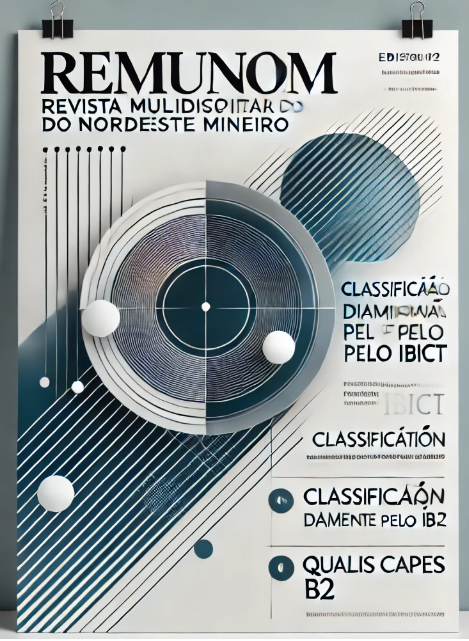NEUROCIÊNCIA E ENSINO DE LEITURA: COMO PRÁTICAS BASEADAS NO FUNCIONAMENTO CEREBRAL PODEM MELHORAR A ALFABETIZAÇÃO INCLUSIVA
NEUROSCIENCE AND READING INSTRUCTION: HOW BRAIN-BASED PRACTICES CAN ENHANCE INCLUSIVE LITERACY
DOI:
https://doi.org/10.61164/rmnm.v7i1.3770Keywords:
Neurociência. Alfabetização inclusiva. Leitura. Prática pedagógica. Educação.Abstract
ABSTRACT
This article aims to analyze how neuroscience knowledge can support pedagogical practices focused on reading instruction in inclusive literacy contexts. It is a qualitative, bibliographic research based on scientific publications indexed between 2022 and 2025. The analysis showed that reading involves multiple neural systems and that neurocompatible pedagogical practices—such as multisensory stimulation, phonological awareness, and visual aids—are effective in developing reading skills, especially in students with learning difficulties. The results also highlight the need for continuous teacher education and the adoption of personalized strategies tailored to different cognitive profiles. It is concluded that integrating neuroscience and education contributes to more inclusive, equitable, and evidence-based literacy.
Keywords: Neuroscience. Inclusive literacy. Reading. Pedagogical practice. Education.
References
ALÉ-SILVA, J.; MUÑOZ, M. L. A. Estratégias motivacionais emergentes baseadas em tecnologia: uma revisão sistemática com meta-análise. Ciências da Educação Instituto Multidisciplinar de Publicação Digital, 2025. Disponível em: https://doi.org/10.3390/educsci15020197. Acesso em: 28 mar. 2025.
CAPELLINI, S. A.; TONELOTTO, J.; CIASCA, S. M. Intervenções fonológicas com base neurocientífica: efeitos em crianças com dificuldades de aprendizagem. Revista CEFAC, v. 24, n. 2, p. 1–12, 2022.
CYPEL, S.; LOPES, C. S.; PIRES, L. S. Neurodesenvolvimento, cognição e aprendizagem: desafios e possibilidades para o professor. Revista Neurociência em Foco, v. 5, n. 2, p. 45–59, 2023.
DAMÁSIO, M.; CARDOSO, C. S. Contribuições da neurociência para a educação inclusiva: práticas pedagógicas e evidências. Revista Brasileira de Educação Especial, v. 29, n. 1, p. 105–120, 2023.
DEHAENE, S. Como aprendemos: por que o cérebro funciona melhor do que qualquer máquina (por enquanto). Rio de Janeiro: Objetiva, 2022.
MORAES, A. L. P.; RODRIGUES, M. N.; FERREIRA, T. L. Práticas pedagógicas inclusivas baseadas em evidências neurocientíficas. Educação em Revista, v. 39, e23922, 2023.
NAVAS, A. L. G. P.; SILVA, A. G. M.; TORRES, D. D. C. Cérebro, leitura e alfabetização: evidências da neurociência cognitiva para o contexto escolar. Neuropsicologia Latinoamericana, v. 14, n. 1, p. 45–59, 2022.
PICCININI, C. A. Desenvolvimento humano em contexto: contribuições da psicologia. In: OLIVEIRA, Z. M. R.; PICCININI, C. A.; BITENCOURT, M. (orgs.). Psicologia, desenvolvimento humano e educação: interfaces. Porto Alegre: Artmed, 2012.
RIBEIRO, I. M.; FREITAS, M. F.; AMORIM, K. M. Desenvolvimento da consciência fonológica em crianças na educação infantil. Psicologia Escolar e Educacional, v. 27, 2023.
SALLES, J. F. et al. Neuropsicologia da leitura e da escrita: contribuições para a prática pedagógica. Estudos de Psicologia (Campinas), v. 39, e220067, 2022. Disponível em: https://doi.org/10.1590/1982-0275202239e220067. Acesso em: 28 mar. 2025.
Downloads
Published
How to Cite
Issue
Section
License
Copyright (c) 2025 Revista Multidisciplinar do Nordeste Mineiro

This work is licensed under a Creative Commons Attribution-NonCommercial-ShareAlike 4.0 International License.




